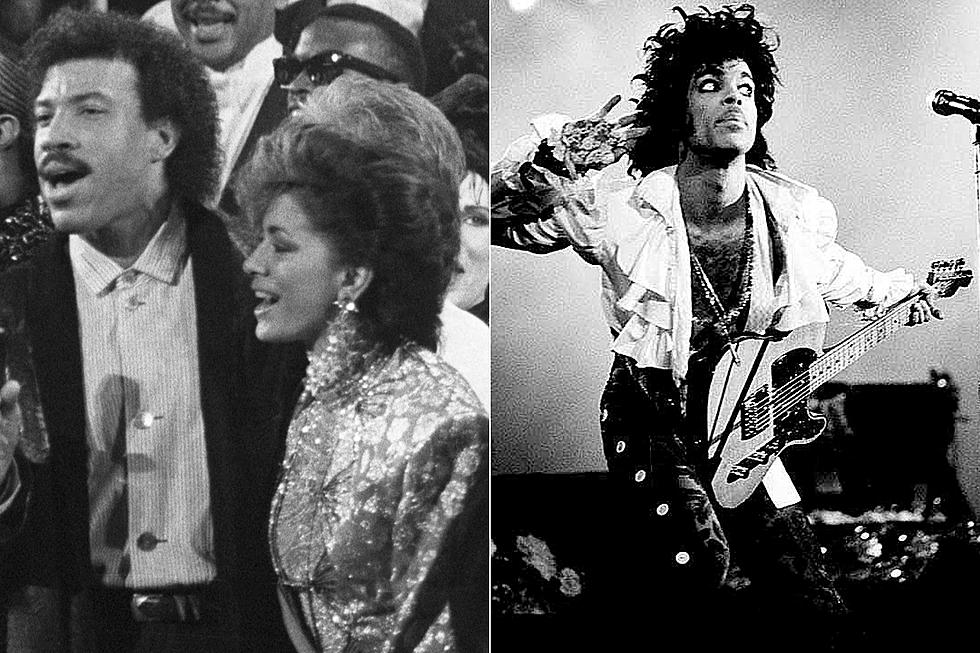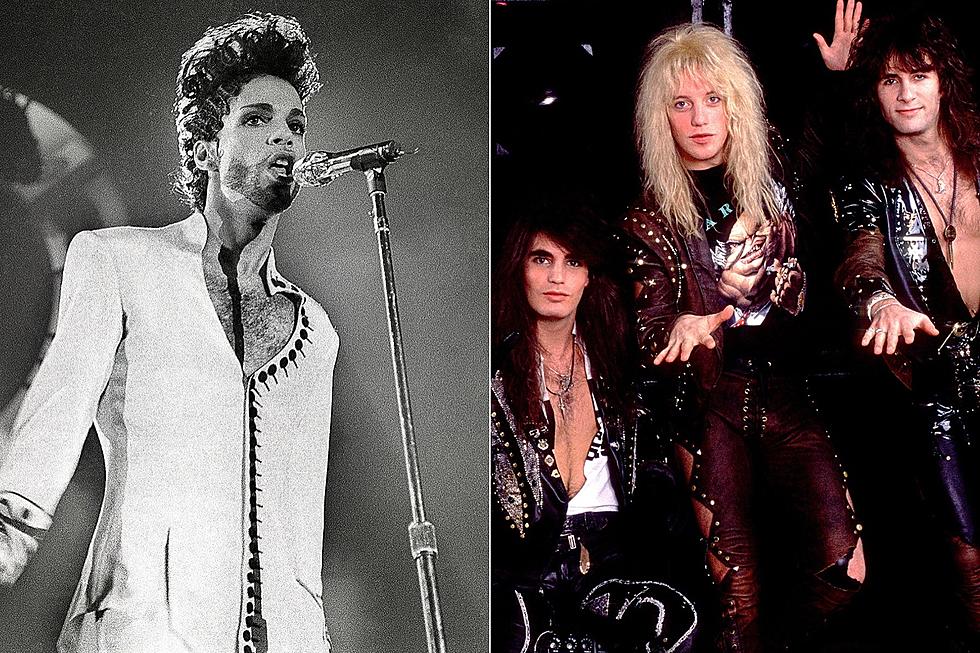
Prince’s ‘Right Back Here in My Arms’ Soundtracks a Season of Loss
He didn't know it at the time, but "Right Back Here in My Arms" perfectly echoed the approach Prince ultimately took in dealing with unimaginable pain.
Arriving as the second song on 1996's Emancipation after "Jam of the Year," "Right Back Here in My Arms" was originally slotted to introduce this sweeping three-album statement of independence. Prince's party-groove opener was the better fit, but there's a reason this track – powered along by a dark-hued, seemingly bottomless groove – tended to resonate for much longer.
He had reached a crossroads, both personally and professionally. A bitter contract fight with Warner Bros. was over, opening the door for Prince to release his songs on his own schedule. But at the same time, he'd received no small amount of criticism over recent career decisions, from changing his name to an unpronounceable glyph to concluding his run at Warners by releasing seemingly tossed together leftovers. More tragically, the newlywed would suffer the loss of a child. Amiir died due to complications from a rare congenital defect only a week after his October 1996 birth – just as Emancipation was being readied for release.
Rounding the corner on 40, Prince was soon living an existence defined by dichotomy: on the one hand joyous, on the other heartbreak. He threw himself, as always into work. (Tellingly, "Right Back Here in My Arms" uses a repeated vocal sample of the phrase "that's my only mission" from an unreleased collaboration with Ninety-9 called "Three Shots.") Even in the midst of such a bruising period, he remained ever determined to carry on.
Emancipation was, in fact, the third Prince-related album of 1996, following the contract-requirement Chaos and Disorder and his soundtrack for Spike Lee's Girl 6. Prince quickly assembled a new band, still under the New Power Generation moniker, and set out on the 1997-98 Jam of the Year Tour. But he never shook a lingering sense of longing. As "Right Back Here in My Arms" makes clear, Prince remained well aware of what this world was capable of taking from him – even if outwardly, his brave face remained firmly affixed.
For instance, Prince acknowledged this era as "the most traumatic of my life" in a 1997 talk with Top of the Pops magazine, "but contrary to what has been said about me, I feel very positive. I believe God has a plan. Everything that happens, there's a reason for it."
He found solace in a theme already present within the aching strains of "Right Back Here in My Arms": Prince tried to imagine a circumstance in which his son Amiir would somehow return. "There are so many ways to look at things," Prince added. "I would never use the words, 'They're gone.' They will always come back, you see."
Emancipation arrived just weeks after he and wife Mayte lost the baby. Prince had signed the first of what would become many stand-alone deals to get his music to the market, agreeing to let EMI distribute the 36-track project with his NPG imprint. He pointedly retained ownership of the master recordings, describing EMI as simply "hired hands, like calling a florist to deliver flowers to my wife." He sounded like a man freed.
"People think I must miss the old days. No way," Prince told Icon magazine in 1998. "I was doing the 75th Purple Rain show, doing the same thing over and over – for the same kids who go to Spice Girls shows. And I just lost it. I said: 'I can't do it!' They were putting the guitar on me and it hit me in the eye and cut me and blood started going down my shirt. And I said, 'I have to go onstage,' but I knew I had to get away from all that. I couldn't play the game."
In this way, though it makes for a very strange paradox, Prince was also enjoying a time of renewal. Not long after he'd married Mayte, a former dancer in the New Power Generation touring collective, Prince took her back to his old neighborhood – and that experience gave him a lasting insight into how to carry on through times of change.
"When we got there," he told Musician magazine in 1997, "everything was gone: The house where I grew up, all the buildings, everything had been torn down – except this one tree that I used to climb on when I was a kid. That's all that was left. So, I went over to this tree, put my hand on it, and let the memory of that time flow back into me. If that's what energy is all about, if this tree could remind me of something – even if it looks raggedy and old – that's the most beautiful thing."
The seeds of "Right Back Here in My Arms" could have been planted right then and there.
Prince Albums Ranked in Order of Awesomeness
More From Ultimate Prince










